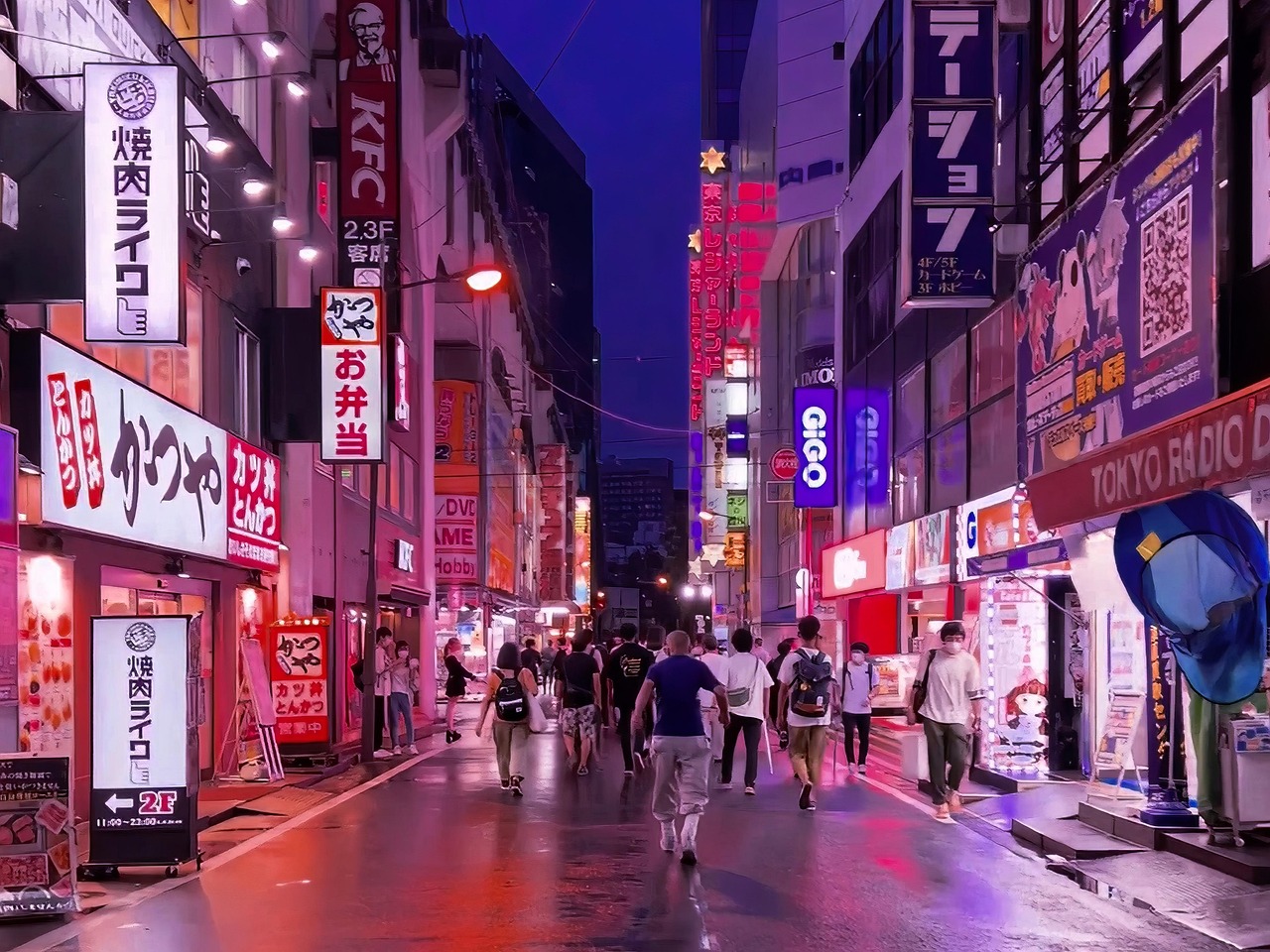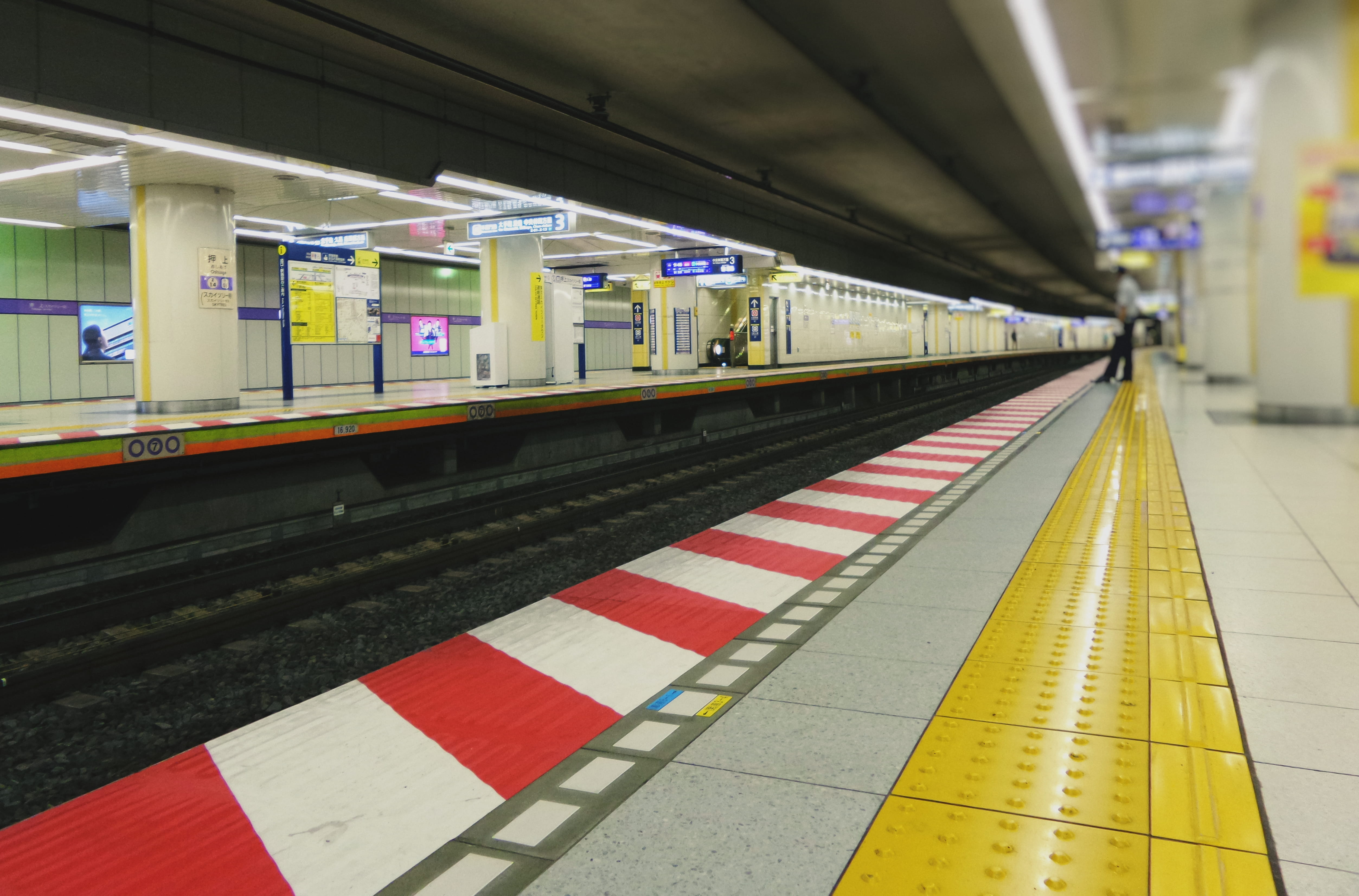A Tale of Two Cities in One
Tokyo is not just a city; it's a living paradox. A sprawling metropolis of over 14 million people, it is a place where ancient tradition and futuristic innovation collide in a dazzling spectacle.
Tokyo's Neighborhoods: A City of Worlds
Each of Tokyo's districts has a distinct character, from the towering skyscrapers of Shinjuku to the serene atmosphere of Asakusa. Visiting them is like traveling to different cities all within one.
Shinjuku: Neon & Serenity
Shinjuku is a hub of contrasts. By day, it's a bustling business and shopping district centered around the world's busiest train station. By night, it transforms into a vibrant entertainment district with endless options for dining, drinking, and nightlife. A must-visit is the free observation deck at the Tokyo Metropolitan Government Building, offering a stunning panoramic view of the city and, on a clear day, Mount Fuji. For a unique cultural experience, get lost in the tiny alleyways of Shinjuku Golden Gai, a maze of over 200 miniature bars, or explore the lantern-lit `Omoide Yokocho` (Memory Lane), famous for its yakitori stalls. To escape the urban energy, the tranquil Shinjuku Gyoen National Garden provides a welcome oasis with its meticulously manicured landscapes and beautiful seasonal foliage.
Shibuya & Harajuku: Youth & Fashion
Shibuya is the epicenter of youth culture, fashion, and entertainment. It is home to the world-famous Shibuya Scramble Crossing, where hundreds, sometimes thousands, of pedestrians cross simultaneously from all directions. It's a mesmerizing spectacle best viewed from an elevated spot, like the Starbucks in the Tsutaya building. Near the station, you'll also find the loyal statue of Hachiko, a popular meeting point. Just a short walk away is Harajuku, a hub of quirky teenage fashion and culture. Stroll down Takeshita Street, a narrow lane packed with trendy boutiques, crepes, and colorful snacks, then find peace at the majestic Meiji Jingu Shrine, a tranquil forested sanctuary dedicated to Emperor Meiji and Empress Shoken.
Asakusa: A Glimpse of Old Tokyo
Step back in time in Asakusa, a district that retains the atmosphere of old Edo. The centerpiece is the magnificent Senso-ji Temple, Tokyo's oldest and most significant Buddhist temple. Before you reach the main hall, you'll walk down Nakamise-dori, a lively shopping street that has been selling traditional souvenirs, snacks, and crafts for centuries. From Asakusa, you can take a river cruise or simply look across the Sumida River to see the sleek, modern design of the Tokyo Skytree, offering a perfect juxtaposition of Tokyo's past and present. The area is also famous for its traditional street food, including `ningyo-yaki` (small cakes) and `agemanjū` (fried buns).
Akihabara: Anime & Electronics
Known as "Electric Town," Akihabara is the mecca for all things related to anime, manga, video games, and electronics. The streets are lined with towering buildings adorned with flashing lights and giant anime characters. You can spend hours exploring multi-story shops like Mandarake Complex or Super Potato, which specialize in vintage and modern games. The district is also famous for its themed cafes, including the quirky and immersive maid cafes, where waitresses dressed in maid costumes serve food and entertain guests. It’s an essential stop for anyone interested in Japan's vibrant `otaku` (geek) culture.
Tokyo's neighborhoods each have a unique personality, from ancient to futuristic.
Budgeting for Tokyo: Costs & Accommodation
Contrary to popular belief, a trip to Tokyo doesn't have to break the bank. With smart planning, you can experience the city on any budget.
Daily Costs (Excluding Accommodation)
- Budget Traveler: 5,000 - 8,000 JPY per day. This involves eating at convenience stores (`konbini`), fast-food chains like Yoshinoya, and local ramen shops. You'll rely on the Tokyo Subway Ticket for transport and enjoy free attractions like parks and temple grounds.
- Mid-Range Traveler: 10,000 - 18,000 JPY per day. This allows for sit-down meals at casual restaurants (`izakaya`), admission to museums and observation decks, and more flexible use of public transport.
- Luxury Traveler: 25,000+ JPY per day. This includes high-end dining, shopping in Ginza, and private guided tours.
Accommodation Options
- Hostels & Guesthouses: Perfect for budget travelers, offering dorm beds for as little as 3,000 JPY per night.
- Capsule Hotels: A unique Japanese experience, offering a futuristic pod-like bed for a low price, typically 4,000-6,000 JPY.
- Business Hotels: A popular, mid-range option with small but clean and efficient rooms, often costing 8,000-15,000 JPY per night.
- Luxury Hotels: Tokyo has no shortage of world-class hotels, with prices starting from 25,000 JPY and going up significantly.
A First-Timer's 5-Day Tokyo Itinerary
To help you make the most of your trip, here is a suggested itinerary that balances the city's highlights.
Day 1: Old Tokyo & The Sky
Begin your journey in Asakusa. Start at the majestic Kaminarimon Gate and walk down Nakamise-dori, browsing the stalls and tasting local snacks. Explore the vast grounds of Senso-ji Temple, then walk or take a short train to the Tokyo Skytree for panoramic views of the city. In the evening, head to the nearby Ueno Park, home to several museums and the charming `Ameya Yokocho` market street.
Day 2: Imperial Grandeur & Upscale Ginza
Start your day with a visit to the Imperial Palace East Garden (free admission), a serene escape and a remnant of the former Edo Castle. Afterward, stroll through the upscale district of Ginza, known for its luxury boutiques and department stores like the iconic Ginza Wako building. In the afternoon, dive into the bustling world of Akihabara, exploring multi-story electronic shops and unique pop culture stores.
Day 3: Modern Hubs & Nightlife
Head to Shinjuku. Start your day with a visit to the Tokyo Metropolitan Government Building for a spectacular free view. Then, relax in the expansive Shinjuku Gyoen National Garden. As night falls, experience the neon-lit chaos of Kabukicho, the `Omoide Yokocho` food alley, and the tiny, atmospheric bars of Golden Gai.
Day 4: Youth Culture & Serenity
Explore the fashion-forward and youthful districts. Start at the peaceful Meiji Jingu Shrine, a sacred forested sanctuary. From there, head to Harajuku's bustling Takeshita Street for a sensory overload of pop culture, trendy clothing, and unique sweets. Conclude your day in Shibuya by watching the scramble crossing, shopping, and grabbing a photo with the Hachiko statue.
Day 5: A Day Trip or Deep Dive
On your last day, you can choose to take a day trip outside the city to destinations like the onsen town of Hakone (for incredible views of Mount Fuji and hot springs) or the historic city of Kamakura. Alternatively, if you want to explore more of Tokyo, you can visit the Odaiba waterfront for a futuristic feel, the trendy neighborhood of Omotesando for unique architecture, or delve into the art and culture of Ueno Park's museums.

A well-planned itinerary allows you to experience Tokyo's incredible diversity.
A City That Exceeds All Expectations
Tokyo is a city of superlatives. It is the busiest, the most innovative, and, for many, the most captivating city on Earth. It is a place that challenges your senses, pushes your boundaries, and leaves you with an indelible sense of awe. From the organized chaos of Shibuya Crossing to the profound tranquility of its ancient temples, Tokyo masterfully weaves together its past and future. It’s a city that rewards those who are willing to embrace its unique customs and its boundless energy. By following this guide, you will not only see the sights but also feel the rhythm of this incredible metropolis, leaving with memories that will last a lifetime.
